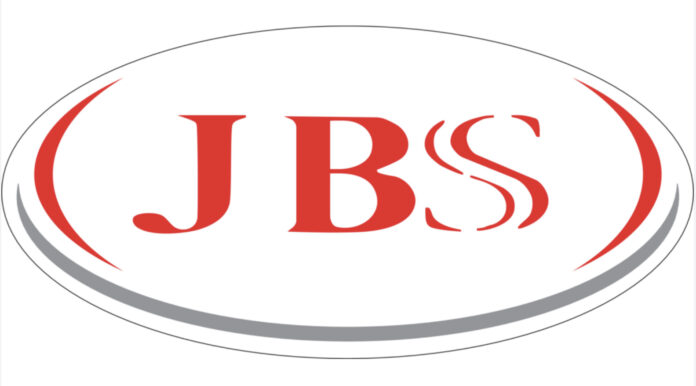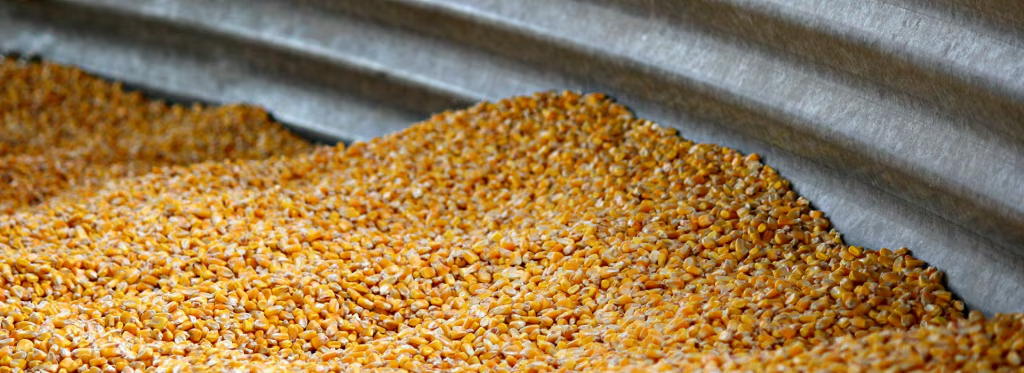In a recent development, JBS, the world’s largest meatpacker, made headlines in 2021 by committing to cutting or offsetting all its emissions by 2040. This ambitious goal also included ending illegal deforestation across its extensive supply chain that originates in the Brazilian Amazon. However, a recent interview with Jason Weller, the global chief sustainability officer at JBS, revealed that the company’s emissions goal was considered more of an “aspiration” rather than a concrete promise.
Despite using strong language such as “commitment” and “pledge” in their communications about sustainability, Weller clarified that the net-zero emissions pledge was never a guarantee that JBS would achieve this target. He emphasized that the company cannot directly control how farms operate, although they are actively encouraging voluntary changes among their suppliers. JBS had previously committed to ending illegal Amazon deforestation by its cattle suppliers by 2025, but the progress towards this goal remains unclear.
In response to questions raised about the company’s climate ambitions, JBS stated that their commitment to sustainability remains unchanged. However, a report by Reuters highlighted that investors have had limited success in holding JBS accountable for their pledges in the past five years. There have been few shareholder proposals related to environmental issues, minimal opposition to the Batista family (the largest investors in JBS), and a lack of sustainability-focused discussions during earnings calls.
The profitability of the meat industry, driven by strong consumer demand, has contributed to JBS’ soaring profits and stock performance. However, the environmental impact of cattle farming, particularly in the Amazon region, has raised concerns about deforestation, biodiversity loss, and greenhouse gas emissions. Brazilian cattle ranchers are responsible for a significant portion of Amazon deforestation, posing a threat to the rainforest’s ability to sequester carbon dioxide and mitigate climate change.
The challenges associated with reducing environmental damage in the agriculture sector could undermine Brazil’s position as it prepares to host global climate talks. JBS is not the only company facing scrutiny over its climate pledges, as oil majors like Shell and BP have also faced criticism for softening their commitments. Environmental activists have pointed out that a large portion of JBS’ emissions are linked to deforestation, biodiversity loss, and pollution, categorized as emissions from changes in land use.
Despite reporting indirect emissions throughout its supply chain, JBS has excluded emissions related to changes in land use due to uncertainties in calculating these figures. Weller acknowledged the need for a standardized format to accurately measure land-use-change emissions and expressed a willingness to work towards improving transparency and accountability in this area.
In conclusion, the evolving landscape of sustainability in the meat industry highlights the complexities and challenges faced by companies like JBS in meeting their environmental goals. As stakeholders continue to demand greater transparency and action on climate issues, companies must prioritize accountability, innovation, and collaboration to drive meaningful change towards a more sustainable future. JBS, a global company, has chosen to focus on emissions from its own operations, particularly slaughterhouses. This decision sets them apart from other companies like Mars, Archer Daniels Midland, and Bunge, who have started disclosing change-of-land-use emissions. Despite the company’s efforts to address emissions within its own operations, JBS acknowledges that they do not have the authority to mandate changes on farms or dictate how their customers use their products.
According to Morningstar Sustainalytics, an independent sustainability ratings agency, JBS ranks in the 95th percentile among the companies analyzed, with a “severe-risk” rating for its environmental performance. Despite this high risk rating, the company has faced minimal pressure from investors and stakeholders, even as concerns grew about its ability to meet sustainability targets. In fact, the company’s 20 largest investors declined to comment on JBS, even as European companies called for action to stop deforestation.
While JBS is committed to improving transparency and engagement with investors on sustainability, the company’s ownership structure limits the influence of private investors. The Batista family holds almost half of the company’s stock, and the Brazilian development bank BNDES owns an additional 21 percent, often siding with management in votes. Proxy advisors like Glass Lewis and ISS have raised concerns about JBS’s climate risk mitigation, board accountability, and governance practices, particularly in the context of past corruption scandals.
During Operation Car Wash, a widespread anti-corruption investigation in Latin America, JBS executives Wesley and Joesley Batista were banned from holding management positions after admitting to bribing thousands of officials over a decade. Despite this, the brothers rejoined JBS’s board after a shareholder vote in April.
Overall, JBS faces challenges in meeting sustainability targets and addressing environmental concerns, but the company remains committed to driving real change within its operations and supply chain. As pressure mounts from stakeholders and investors, JBS will need to continue improving transparency, engaging with investors, and addressing governance issues to ensure long-term sustainability and success.




